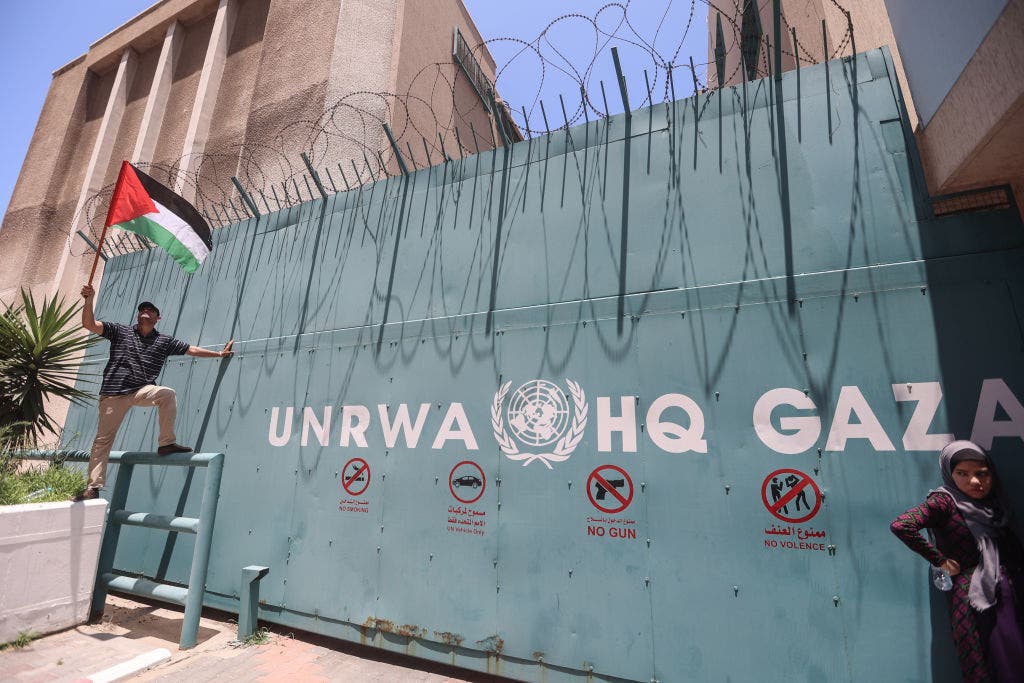World
Head of UN watchdog says UNRWA hired people ‘who were supporting terrorism’

The United States and the United Nations: A Rift Over UNRWA Funding
The United States has long been one of the largest contributors to the United Nations Relief and Works Agency for Palestinian Refugees in the Near East (UNRWA). However, in a significant foreign policy move, President Donald Trump decided to cut off U.S. funding to the agency. This decision came amid heightened tensions during the Israel-Hamas war, which began with the tragic massacre on October 7, 2023. The U.S. government’s decision to halt funding was influenced by accusations that UNRWA had ties to terrorist organizations, particularly Hamas, and that some of its staff members were involved in violent attacks. This move has sparked a heated debate about the role and legitimacy of UNRWA in the region.
The Origins and Evolution of UNRWA
UNRWA was established in 1949 to provide relief and assistance to Palestinian refugees displaced during the Arab-Israeli conflict. Over the years, the agency has grown to serve millions of Palestinians across the Middle East, providing essential services such as education, healthcare, and social support. However, critics argue that UNRWA’s mission has strayed from its original purpose. Hillel Neuer, Executive Director of UN Watch, claims that while UNRWA was founded on "altruistic good intentions," it has "morphed into something which is the complete opposite of what it was supposed to be." Neuer points to the agency’s alleged ties to terrorism and its failure to address the root causes of the refugee crisis.
Allegations of Terrorism Ties and Misconduct
One of the most damning allegations against UNRWA is its perceived links to terrorist organizations. Critics point to specific cases of UNRWA staff members who have been accused of supporting or even actively participating in terrorist activities. For example, Fathi al-Sharif, a former principal of an UNRWA school, was identified as a high-ranking member of Hamas in Lebanon. Similarly, Suhail al-Hindi, a former head of UNRWA’s local staff union in Gaza, was accused of being elected to a political office within Hamas. UNRWA has responded to these allegations by stating that it prohibits any involvement of its staff in militant or armed groups and has taken disciplinary action against those found to be in violation of these policies.
The Fallout of Trump’s Funding Cut
President Trump’s decision to halt U.S. funding to UNRWA was met with strong reactions from both supporters and critics. Neuer and other critics of the agency welcomed the move, arguing that it was a long-overdue recognition of UNRWA’s failures and its alleged support for terrorism. On the other hand, UNRWA and its defenders argue that the agency is a vital lifeline for millions of Palestinians who depend on its services. They contend that the U.S. decision will only exacerbate the humanitarian crisis in the region and undermine efforts to achieve peace.
The Broader Implications for the United Nations
The debate over UNRWA funding is part of a larger discussion about the role of the United Nations and its various agencies in international affairs. Critics like Neuer argue that UNRWA and other U.N. agencies have become "wolves in sheep’s clothing," purporting to promote peace and human rights while actually enabling terrorism and perpetuating conflicts. Neuer draws parallels to other controversial issues, such as the U.N. Human Rights Council (UNHRC), which he accuses of protecting human rights abusers rather than holding them accountable. The U.S. government has also expressed concerns about the effectiveness and impartiality of these agencies, calling for renewed scrutiny and reform.
The Future of UNRWA and the U.S.-U.N. Relationship
As the situation continues to unfold, the future of UNRWA and the U.S.-U.N. relationship remains uncertain. While the U.S. has halted its funding, other countries have pledge











